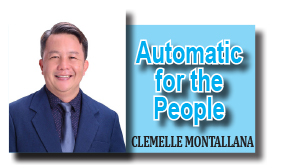In the face of the seemingly exponentially rising Artificial Intelligence, what will happen to the traditional education delivery that we have been brought up with?
The job market landscape is actually evolving, if you happen to look into the virtual assistants and home-based jobs, we see incumbents having various diploma and degrees but are employed as simple data encoder, medical transcriber, law firm clerks and call center agents or Business Processing Outsourcing.
The value of traditional degrees and diplomas is evolving as industries increasingly prioritize skills over formal education credentials. While degrees will still hold significance, many employers are shifting towards skills-based hiring, focusing on practical competencies rather than academic qualifications.
This trend is particularly evident in fields like technology, healthcare, and business, where hands-on experience and specialized skills often outweigh the necessity of a four-year degree. Some companies, including those in the Philippines, are now valuing work experience and growth potential over academic achievements alone.
Several industries in the Philippines are shifting towards skills-based hiring, where practical competencies matter more than formal degrees. Here are some of the key sectors leading this trend:
• Technology & IT: Companies in software development, cybersecurity, and data analytics prioritize technical skills, certifications, and hands-on experience over traditional degrees.
• Business Process Outsourcing (BPO): The BPO industry values communication skills, problem-solving abilities, and adaptability rather than formal education.
• Creative & Digital Media: Graphic design, content creation, and digital marketing roles often favor portfolios and practical expertise over academic qualifications.
• Construction & Engineering: Skilled trades such as welding, plumbing, and electrical work rely on certifications and apprenticeships rather than degrees.
• Healthcare & Allied Services: While medical professions require degrees, roles like caregiving and medical transcription focus more on specialized training.
This shift reflects the growing recognition that real-world experience and technical skills are often more valuable than formal education.
On a personal take , I am certain that highly technical knowledge and rigorous fields requiring stored knowledge and judgment calls may propagate the degree but the sheer skill-based demands can somehow change peoples minds. They may go to Skills rather than Degrees!




